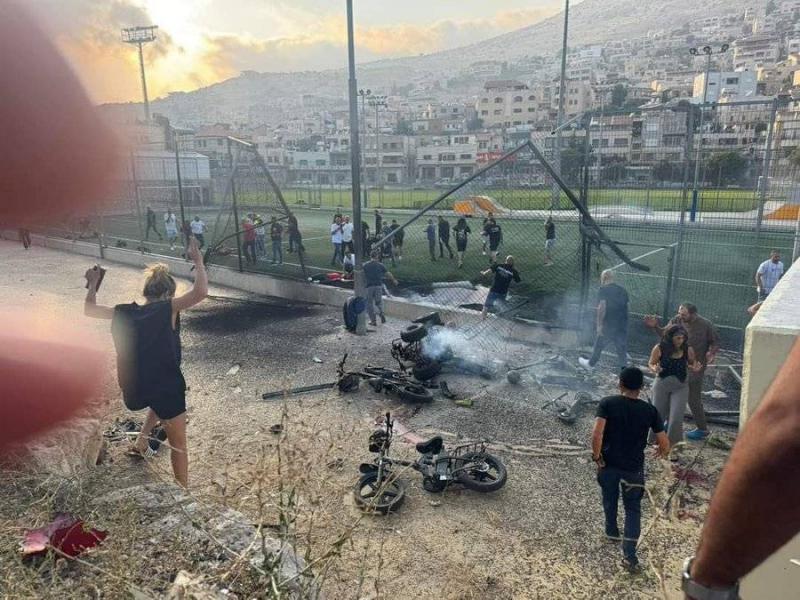The international political arena has not calmed since Saturday, with ongoing warnings about the potential outbreak of a comprehensive war between Israel and the Lebanese Hezbollah group following the escalation in the occupied Syrian Golan. Described as "the most dangerous for Israel," despite Hezbollah denying responsibility for a rocket attack on a soccer field in the part of the Golan Heights controlled by Israel on Saturday, Tel Aviv threatened to escalate the already tense confrontation along the Lebanese border. The attack resulted in the death of 12 people aged between 10 and 20 and injured about 20 others, according to emergency services. The Israeli army stated that the rocket carried a warhead heavier than usual, accusing Hezbollah of being responsible for the attack. Defense Minister Yoav Galant confirmed he ordered a response, igniting international warnings of a potential conflict in the region threatening unimaginable dangers, according to the United Nations.
The situation did not stop there, as the Israeli army announced carrying out two airstrikes on the town of Khyam, east of the border with Lebanon. It added in a statement that the strikes caused significant destruction, without specifying whether there were casualties or if the damages were limited to material losses only. It continued that the airstrikes targeted a series of Hezbollah objectives across Lebanon, striking weapon depots and facilities in areas such as Shabriha, Borj al-Shamali, Baalbek, Kafr Kila, Rabbat Thalathin, Khyam, and Tyre Harfa.
In his commentary on the escalation, researcher Daniel Sobelman from the Middle East Initiative at Harvard University, based in Israel, explained that in recent months, Israel and Hezbollah maintained attacks at a level that could harm one another without igniting a comprehensive war that would be destructive to civilians on both sides of the border, according to the Wall Street Journal. He noted that what happened serves as a reminder that this type of conflict management still involves playing with fire, and that neither side has complete control over the escalation. He emphasized that the strike carried out on Saturday was the most dangerous against Israel in 9 months of fighting between Tel Aviv and the party in Lebanon.
It is noteworthy that the rocket that fell yesterday on the town of Majdal Shams, which has a Druze majority located near Lebanon and Syria, was part of a barrage of about 40 rockets that the Israeli army said were launched from Lebanon at Israel on Saturday afternoon. Hezbollah claimed responsibility for several attacks on Israeli military targets on Saturday but completely denied any connection to the Majdal Shams attack. Meanwhile, Prime Minister Benjamin Netanyahu's office announced that he was assessing the situation and hastening his return to Israel from Washington.
For its part, the Lebanese government condemned on Saturday "all acts of violence and attacks against all civilians." Furthermore, Israeli rescue services reported on Saturday that 12 people were killed, and 34 others were injured in a rocket bombardment on the occupied Golan in northern Israel, with the Israeli army accusing Hezbollah of carrying it out.
It is worth mentioning that US-led negotiators are working to avert a broader regional war by seeking to achieve a diplomatic solution between the two sides, but Hezbollah stated it would not stop its strikes until fighting in Gaza ceases. Discussions on a ceasefire there have been stalled for several months, with negotiators and the Israeli security establishment blaming Netanyahu for hampering progress. For his part, Netanyahu confirmed that fighting must continue until Hamas is destroyed, stressing that military pressure will lead to an agreement.




